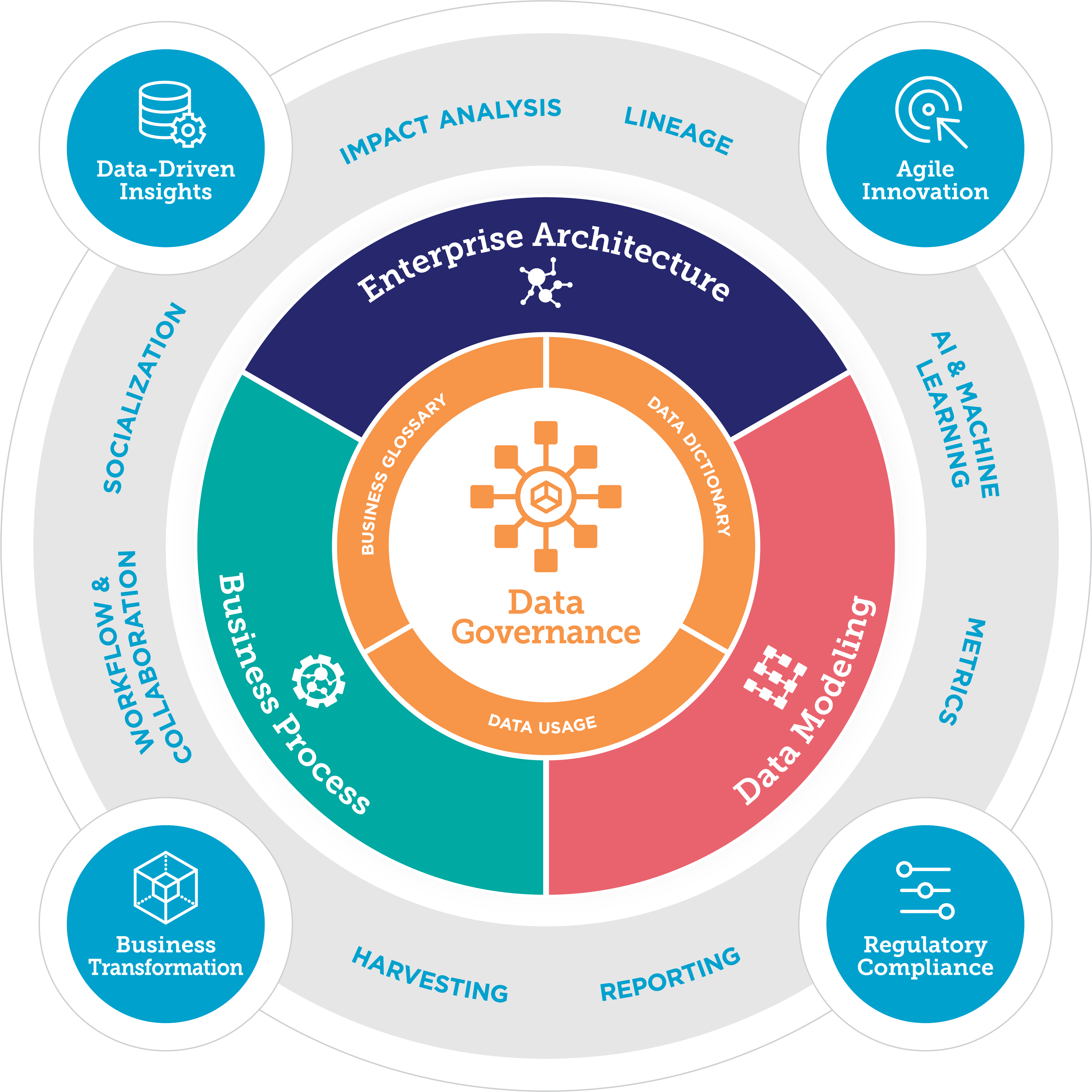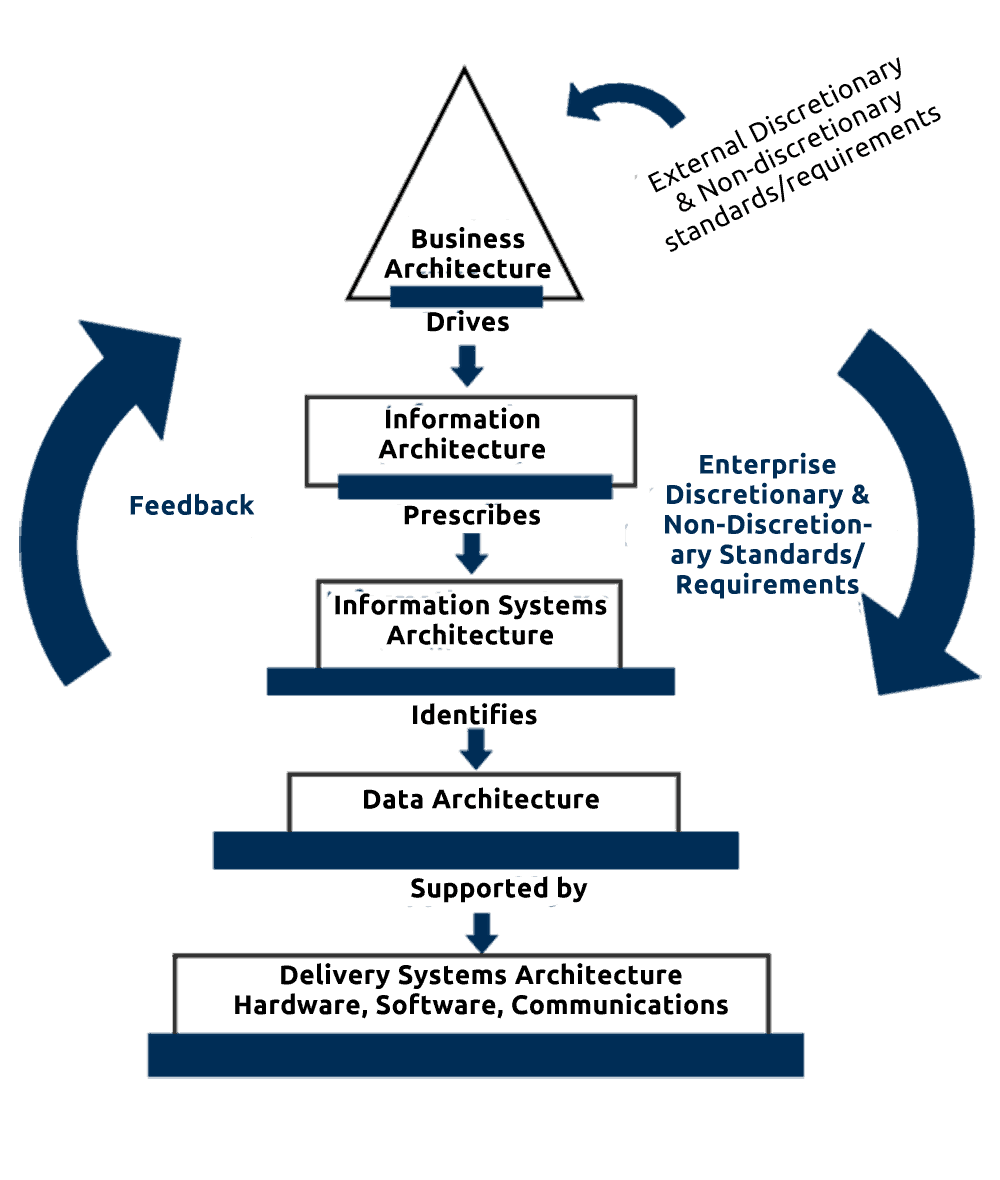Where do we go?
How do we get there?
The sheer volume of data that is generated in a digitally connected world makes it a task requiring attention. Organizations cannot afford a reactive approach to data management, as poor data management weakens an organization’s ability to conduct business, effectively manage customers, deliver timely, and grow profitably. Often times, fragmented ownership of data leads to gaps and duplication, with an adverse impact on the quality of data that an organization generates and uses. Without sound data controls, regulatory compliance and reporting could be affected, putting your company at risk under regulations and initiatives such as HIPPA, AML, CCPA, and KYC. For financial services industry, this would also include the likes of Basel Solvency, Global Data Protection Regulation (GDPR) and others, requiring disclosures about how data is actually managed in your business.
Data management challenges can reveal themselves in multiple ways - some businesses find privacy a key driver, while others might find that big data is the catalyst driving their adoption of a strong data governance strategy. Data management challenges can manifest themselves in different ways, including:

Thinking Solution is uniquely positioned to bring the right expertise and technology to help assess and refine your data governance practices. Successful data governance should be a company-wide initiative with the right tools in place, the right stakeholders on board, and all data citizens engaged. Above all, knowing where and how to start is important. We lead organizations in understanding the strategic value of a data management program by:
Assist companies manage data effectively while staying compliant with global regulations
Implement workflows and controls for effective data management by defining ownership of data across the orgnanization
Through efficient management of master data, enable businesses to get a single and complete view of transactional data
Measuring and monitoring data quality along with taking adequate steps to improve the quality of data
Carry out metadata analysis to ensure consistent metadata for higher efficiencies, improve project and product delivery
Protecting your sensitive data and increasing your readiness in addressing global data protection regulations

Data Governance is the organizational approach to data and information management, formalized as policies and procedures that transcend the data life cycle, including acquisition, development, use and disposal. For data to be meaningful, it must be easy to find and easy to understand. That makes it easy to trust. And an effective Data Governance Strategy helps srike the right balance between data innovation with data discipline.
Organizations need a simple, cohesive framework to discover and steward data while you move it, transform and harmonize it, cleanse and/or mask it, and prepare it for reporting and other applications in its lifecycle. Most tools that prepare, govern, or analyze data are not integrated, and their interplays add layers of complexity that can impact performance and the availability of data. They may also not provide the audit trails that satisfy the requirements of your risk and controls framework.
A full Data Governance engagement is a comprehensive process that aligns with your business’ strategic goals. With Thinking’s service offering, you receive expert level analysis covering all areas within the Data Governance function. This analysis enables organizations to see the maturity of their current governance structure and guides future planning based on the strongest needs of the business. After analysis is complete, we roll out a strategic roadmap and operational model for moving forward.
How does your business manage change? Many companies are brilliant at developing strategies but often fail in execution because they can’t cope with the multiple changes necessary to see them through. When business structures need to change at the same time as new technology is being implemented and information processing is changing, it’s easy to get overwhelmed. Enterprise data architecture and strategy is designed to address this problem.
A modern data architecture eases the access to – and promotes usage of – large volumes of data from traditional and non-traditional sources. We assist in building secure and adaptable architectures to help overcome these common challenges that arise from rigid or aging architectures:

Data Compliance is the practice of ensuring that sensitive data is organized and managed in a way to enable organizations to meet enterprise business rules and enable regulatory compliance. Data Compliance also pertains to the securing the privacy of personal information and how organizations store and secure such sensitive data. As such, companies that work with individuals’ personal information are responsible for protecting that personal data.
Initiate a sustainable approach to manage data privacy policies, maintain a data activity register, perform impact analysis, conduct inventory mapping, and monitor privacy by design.
Manage sensitive data across the lifecycle by implementing audit trails — know who created it, who’s using it — and track risk metrics to make choices about access. Definining roles and responsibilities will assist in a robust data culture.
Our data management consultancy helps companies translate business goals into technology solutions that enable data-driven decision making for continued success. From data strategy to implementation, we help you navigate the data management lifecycle to drive your business goals.
2020 Thinking Solution. All Rights Reserved by Thinking Solution